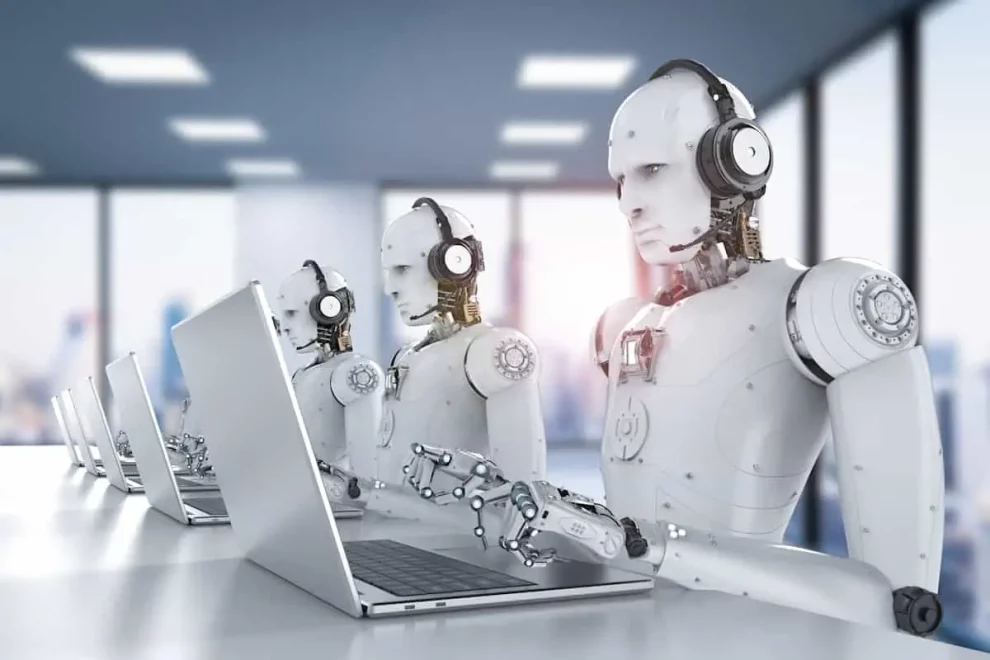The specter of artificial intelligence (AI) looming over the future of work can be both exciting and frightening. While some envision a jobless dystopia, others see a landscape of opportunity with new and exciting roles emerging. The truth, as always, lies somewhere in between. AI is undoubtedly transforming the workforce, but how exactly? Let’s explore the possibilities:
The Rise of the Machines, or Their Assistants?
Automation on the Fast Track:
Repetitive, data-driven tasks will increasingly be automated, impacting industries like manufacturing, transportation, and administrative support. However, this doesn’t spell doom and gloom. Instead, it creates space for humans to focus on higher-order skills like creativity, critical thinking, and problem-solving.
Human-AI Collaboration:
The future work environment will likely be a co-creation space where humans and AI work together. AI can handle the heavy lifting of data analysis and automation, while humans provide strategic direction, ethical oversight, and the necessary emotional intelligence.
What Skills Will Matter?
Upskilling and Reskilling:
As jobs transform, existing workforces will need to adapt and acquire new skills. Adaptability, lifelong learning, and continuous skill development will become crucial for navigating the changing landscape.
Focus on the Uniquely Human:
Skills like empathy, communication, leadership, and critical thinking, all uniquely human strengths, will become even more valuable in the AI-powered future. The ability to understand human emotions, build relationships, and think creatively will be the differentiator in the job market.
New Opportunities on the Horizon:
AI-powered Jobs:
New positions will emerge in areas like AI development, data analysis, cybersecurity, and ethical oversight, requiring professionals with expertise in these fields.
The Gig Economy on Steroids:
The flexible, project-based work model might gain even more traction as traditional work structures continue to evolve. This could offer greater autonomy and career flexibility, but also require strong self-management and networking skills.
Challenges and Considerations:
The Inequality Gap:
Unequal access to education and training will exacerbate existing inequalities if not addressed. Governments and educational institutions need to prioritize providing everyone with the skills and opportunities needed to thrive in the AI-powered future.
The Ethical Dilemma:
Ethical considerations around AI bias, algorithmic transparency, and job displacement need careful attention. We must ensure AI is developed and used responsibly, with human well-being at the forefront.
The Social Safety Net:
Shifting job landscapes require robust social safety nets and policies to support workers transitioning to new careers or facing temporary unemployment due to automation.
Conclusion:
The future of work with AI is not a pre-written script; it’s a story we write together. By embracing lifelong learning, adapting to change, and fostering ethical development, we can navigate the uncertainties and unlock the vast potential of AI for a more fulfilling and equitable future of work. Remember, AI is not a foe to be vanquished, but a powerful tool to be harnessed for the benefit of all. Let’s use it wisely, with human-centricity and ethical considerations guiding our way, to build a future where humans and AI collaborate to create a better world.
















Add Comment